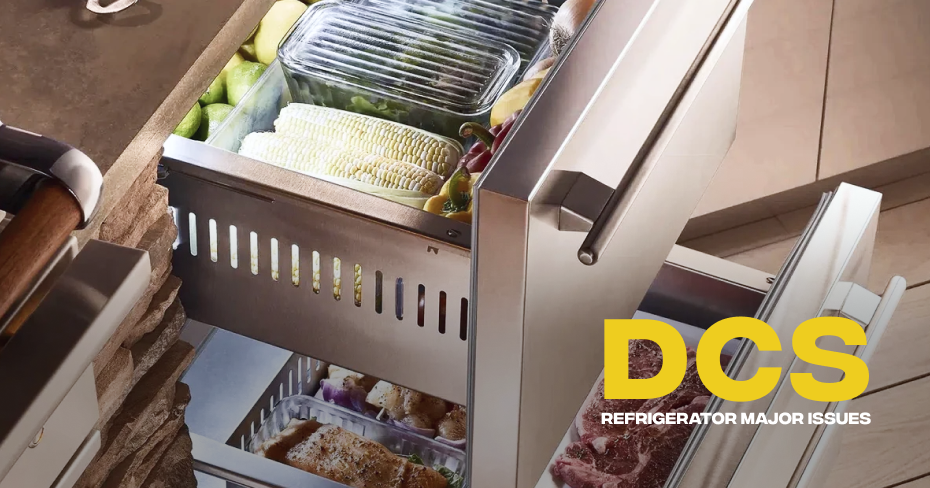
DCS Refrigerator Temperature Fluctuations
Temperature fluctuations in a DCS refrigerator can be a serious problem. If the refrigerator is not maintaining a consistent temperature, it can lead to food spoilage, high energy bills, and even a fire.
There are a number of things that can cause temperature fluctuations in a DCS refrigerator, including:
- A faulty thermostat: The thermostat is responsible for regulating the temperature of the refrigerator. If the thermostat is faulty, it can cause the refrigerator to overheat or undercool.
- A faulty evaporator coil: The evaporator coil is responsible for cooling the air in the refrigerator. If the evaporator coil is clogged or damaged, it can prevent the refrigerator from cooling properly.
- A faulty compressor: The compressor is responsible for circulating the refrigerant through the refrigerator. If the compressor is faulty, it can cause the refrigerator to overheat or undercool.
- A faulty door seal: The door seal is responsible for keeping the cold air in the refrigerator and the warm air out. If the door seal is damaged or worn, it can allow warm air to enter the refrigerator, which can cause the temperature to rise.
There are a few symptoms that can indicate temperature fluctuations in a DCS refrigerator. These include:
- Food spoilage: If food is spoiling faster than usual, it could be a sign that the refrigerator is not maintaining a consistent temperature.
- High energy bills: If your energy bills have been increasing, it could be a sign that the refrigerator is running inefficiently, which could be due to temperature fluctuations.
- Strange noises: The refrigerator may make strange noises if the compressor is working harder than usual to compensate for temperature fluctuations.
If you suspect that your DCS refrigerator is experiencing temperature fluctuations, you can try the following troubleshooting steps:
- Check the thermostat: Make sure that the thermostat is set to the correct temperature.
- Clean the evaporator coil: Clean the evaporator coil with a vacuum cleaner or brush.
- Check the compressor: If the compressor is making strange noises, it could be a sign that it is faulty. Contact a qualified appliance repair technician for assistance.
- Check the door seal: Make sure that the door seal is properly aligned and free of damage.
If you have tried all of these troubleshooting steps and the temperature fluctuations persist, you should contact a qualified appliance repair technician.
There are a few things you can do to help prevent temperature fluctuations in your DCS refrigerator:
- Have your refrigerator inspected by a qualified appliance repair technician annually. This will help to identify any potential problems before they cause temperature fluctuations.
- Clean the condenser coils regularly. The condenser coils help to remove heat from the refrigerator. If they are dirty, they can prevent the refrigerator from cooling properly.
- Replace the water filter according to the manufacturer’s instructions. A clogged water filter can restrict the flow of water to the ice maker, which can cause the refrigerator to overheat.
- Avoid overloading the refrigerator. Overloading the refrigerator can prevent the air from circulating properly, which can lead to temperature fluctuations.
- Do not place hot food in the refrigerator. Hot food can raise the temperature of the refrigerator, which can lead to temperature fluctuations.
By following these tips, you can help to keep your DCS refrigerator running smoothly and prevent temperature fluctuations.
Additional Information
- Temperature fluctuations can be a serious problem. If you suspect that your refrigerator is experiencing temperature fluctuations, it is important to take action immediately.
- If you are not comfortable troubleshooting the problem yourself, you should contact a qualified appliance repair technician.
